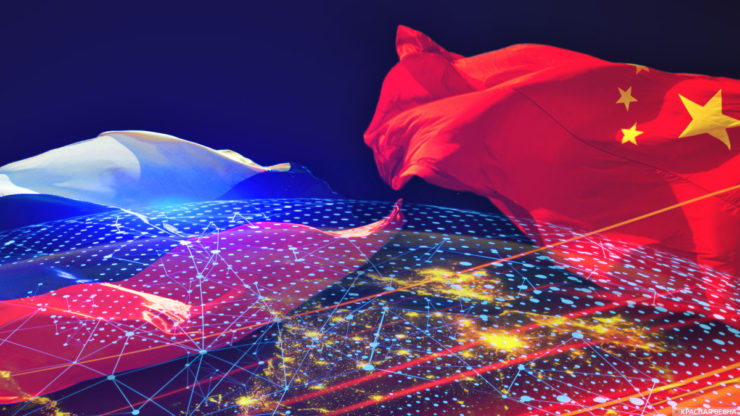
The globe experienced a significant power shift after the culmination of World War 2. The epitome of global hegemony at the time, the British Empire, was replaced by the United States due to the latter’s economic and scientific rise. This shift was further bolstered by the dissolution of the Soviet Union in 1991, marking an end to the Cold War. The USA became the uncontested superpower of the world. This era of the unilateral world order by the United States is known as the New World Order. However, this era did not last more than two decades. The Asian giants, especially Russia and China, are rapidly expanding their global influence. The world has become multipolar due to the rapid rise of Asian countries.
The Collapse of the Soviet Union and Its Global Impact
The disintegration of the Soviet Union (USSR) at the end of the Cold War marked a critical moment in global politics. The USSR’s defeat in Afghanistan was the prime reason behind its collapse, as it triggered significant monetary crises and economic decline. Unfortunately, a regional country, Pakistan, collaborated with the United States to mobilize Muslim militants from different regional countries and Afghan forces, portraying this conflict as a holy cause. Pak-Afghan border areas were used to provide training to these militants against the USSR. This Cold War conflict became the ultimate cause of the collapse of the USSR. Resultantly, several independent states emerged on the globe, with the formation of the Russian Federation.
Russia’s Resurgence and Global Influence
Since 1922, the USSR was a significant superpower of the world comprising 15 republics and with over 290 million citizens, encompassing more than 100 different nationalities. This made it the largest country in the world. The USSR was a formidable nuclear power of the time. However, the nation struggled during the Cold War era: the protracted war-induced political instability, inflation, and economic crises in the country. Unemployment, failed economic policies, and inflation were among the top issues of the USSR during that era. The United States used this situation to support protests and riots in the USSR, which proved detrimental to the latter’s sovereignty.
Russia was led by Boris Yeltsin from 1991 to 1999. Yeltsin was succeeded by Vladimir Putin. Under the leadership of President Putin, Russia has once again restored its status as a global superpower. Due to his diplomatic expertise and strategic acumen, Russia has forged relations with regional and neighboring countries, and different African states as well. He has made significant allies in the developing world. Moreover, his policy regarding Islamophobia and Muslims has also increased Russia’s influence in the Muslim world.
The Russia-Ukraine conflict is one of the major victories of Russia in the recent era. Ukraine has not been able to win the conflict, despite significant financial and military aid from the United States and different European countries. This conflict and the failure of the United States to secure its ally, Ukraine, has increased Russian influence and military supremacy in the world. Sino-Russian relations are also expanding under the leadership of President Putin. Both countries have numerous identical aims and policies on different geopolitical issues. Russia and China are dedicated to establishing a regional bloc. BRICS serves its purpose of establishing this bloc and expanding its influence beyond the Asian region.
The Rise of BRICS and Its Impact on Global Power Dynamics
BRICS provides the opportunity for all the developing countries to freely pursue their geoeconomic and geostrategic policies. Russia, China, India, and Brazil established the organization in 2006. The organization was joined by South Africa in 2010. Recently, the founding members decided to expand the BRICS organization. UAE, Egypt, Ethiopia, and Iran have recently joined the organization. 40 other countries have also demonstrated their interest in joining the organization.
The expansion of BRICS and the rise of Russia and China have expedited the decline of the US hegemony globally. Russia is leading this new bloc. The country has formed cordial relations with Pakistan despite bitter historical memories. Russia and India are historic allies. Putin honored the Indian Premier Mr. Modi with the Order of St. Andrew during the latter’s recent visit to Russia. Putin’s administration is also working to establish closer relations with Afghanistan and Iran. This demonstrates Russia’s desire to establish cordial relations with all the regional countries.
The prospective regional bloc can include all these countries along with the Middle Eastern states. However, financial constraints and the dependence of different developing nations on Western institutions are the primary barriers to the realization of this goal. There is a strong will in the Pakistani population and administration to join BRICS and break the shackles of the Western influence on its policies. However, internal political instability, financial crisis, and an enfeebled economy plague the incumbent government. Support from different Asian economic powers can help Pakistan and other such countries diminish US influence by alleviating their debt.
Numerous analysts and world leaders have predicted the establishment of a new Asian bloc. Viktor Orban, the Prime Minister of Hungary, has also made similar predictions at an EU meeting. This prospective bloc can alter global power dynamics. BRICS and other alliances forming in the region pose a great threat to the already declining US hegemony in the world. This prospective bloc could herald a new era in international relations and can positively change the world due to the inclusive policies of Russia and China.
Taut Bataut – is a researcher and writer that publishes on South Asian geopolitics, exclusively for the online magazine “New Eastern Outlook”
